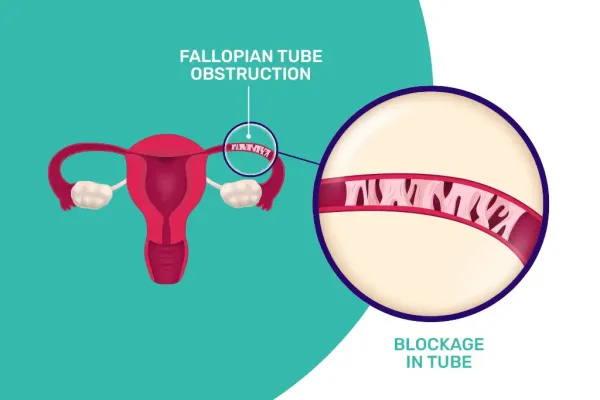Since salpingitis is a common cause of infertility in females, expeditious treatment must be undertaken conductive to prevent permanent damage to the fallopian tubes. Pelvic inflammatory disease (or PID) encompasses blockage or scarring of the fallopian tubes in the long term.
As with many diseases, salpingitis can also be cured if the treatments are commenced immediately. Therefore, if suspicions arise, one must get a consultation booked with a fertility specialist or gynaecologist. With proper follow-ups and care, the infection can reverse. However, the tubes are elastic, and sometimes the infection can be cleared, but the elasticity is damaged and may leave the tubes dilated and damaged.
What Is a Tubal Infection?
Tubal infection, or salpingitis, is undeniably among the top contributors to infertility. Salpingitis is a type of PID where bacterial infection causes redness and swelling of the fallopian tubes. The inflammation of the fallopian tubes enhances the chances of accumulation of fluid or pus inside the tubes, which can, in turn, lead to blockage and hence, infertility.
Sexually transmitted diseases like gonorrhoea and chlamydia are common causes of tubal infection. This undeniably necessitates the administration of antibiotics. Despite that, the treatment options depend vastly upon the severity of the infection.
How to Classify Tubal Infections?
Tubal infections can be chronic or acute.
- Acute salpingitis causes the fallopian tubes to acquire a red colouration and swell. Additionally, they secrete excess fluid, which is attributed to the tubes sticking.
- Chronic salpingitis often supersedes an acute infection. Here, the infection is comparatively milder and may last for a longer period, even though many symptoms might be absent.
What Are the Various Tubal Infection Causes?
Bacterial infection is one of the prime tubal infection causes. The bacteria that cause salpingitis are chlamydia, gonococcus, mycoplasma, streptococcus and staphylococcus. Even if pathogens are widely present in the atmosphere, they do require a way to enter the female reproductive system. Sexual intercourse, IUD insertion, miscarriage, abortion and even childbirth can provide an esplanade for the bacteria to enter. Surprisingly, appendicitis may also offer entrance to the pathogens. TB is another major cause of tubal health.
What Are the Symptoms of Tubal Infection?
The main tubal infection symptoms are:
- Abnormal colour or smell of the vaginal discharge
- Painful periods and ovulation
- Bleeding between periods
- Uncomfortable coitus
- Fever
- Pain on both sides of the abdomen
- Pain in the lower back
- Frequent urge to urinate
- Nausea and vomiting
Some cases have mild infections which do not usually manifest any symptoms. Significant tubal infection symptoms urge the patients to visit the physician. Fallopian tubes may be damaged, and the patient would remain unaware she has an infection.
How Can Tubal Infections Be Diagnosed and Treated?
A general and pelvic examination can determine the localised tenderness. Blood tests can be done to check the WBC count, which often points to an infection. A mucus swab can then be performed to identify the infectious bacteria. Some cases even obligate a laparoscopic investigation.
In about 85% of the cases, antibiotics are used to kill the bacteria. The choice of antibiotic agent and the route of administration depends on the severity of the infection. The accumulation of fluid in the fallopian tube needs surgical drainage. Surgical repair may be opted for if the infection has caused scarring or adhesion of the tube.
For tubes that can’t be repaired or treated, the option is In-vitro Fertilisation for those keen on pregnancy.
Conclusion:
The words ‘prevention is better than the cure’ are true for most diseases, including tubal infections. The use of prophylactic condoms is one of the best ways to prevent salpingitis. Routine STI testing is also one of the ways to steer clear of such conditions. However, visiting a doctor is the best choice if they do arise.

